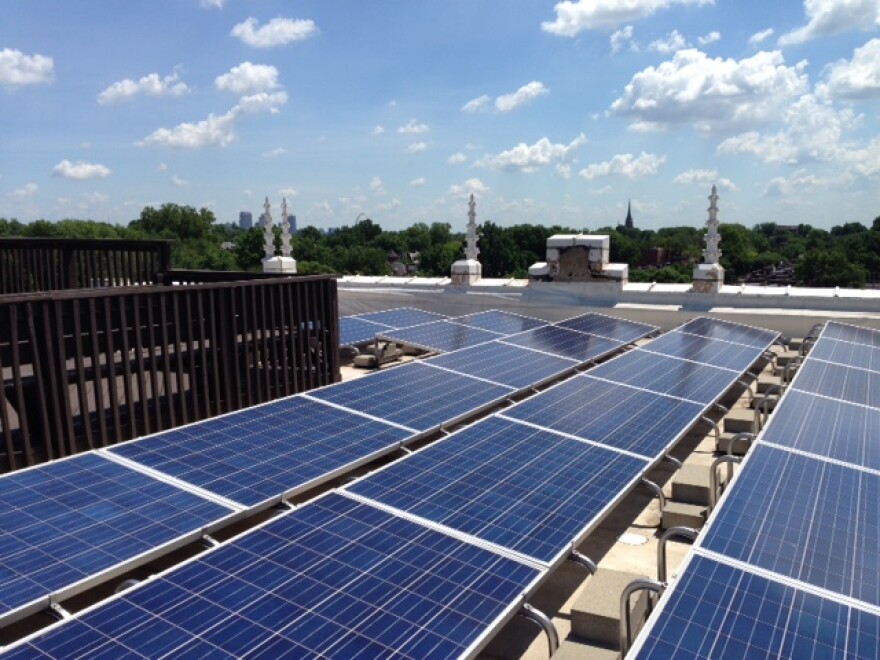St. Louis officials released a plan late Monday to generate 100% of the city’s energy from wind and solar power by 2035.
Environmental lawyers and advocates who worked on the report recommended making buildings more energy efficient, increasing solar panel installation and purchasing wind energy.
Board of Aldermen President Lewis Reed, who sponsored the board’s 2017 clean energy resolution, said achieving the resolution’s goal would benefit the economy.
“That means more jobs for a lot of young people that are out of work today, right? It means families who struggle to make their utility bills now will be able to come closer to being able to afford those necessities,” he said. “If we operate more sustainably, it should ultimately lower our costs of doing business.”
The report calls for achieving complete renewable energy generation for city operations by 2025. It noted that the majority of electricity for city operations should come from wind. Generating wind costs less than fossil fuels, said Andrew Linhares, St. Louis regional director and senior counsel for renewable advocacy group Renew Missouri.
“As the cheapest and the most quickly expanding technology, we think that is the best way in one fell swoop to address the city’s operations and the city’s demands for electricity,” Linhares said.
The plan suggests that the city could consider purchasing wind from Ameren Missouri or a wind farm out of state. The Missouri Public Service Commission last year approved Ameren Missouri’s Renewable Choice Program, which would allow municipalities and businesses to receive energy from the wind operations the utility plans to build.
Authors of the report estimate that buying wind power locally could cost the city $3 million, while purchasing wind from Texas would have no net cost. However, receiving wind power locally would create jobs and reduce more of the city’s greenhouse-gas emissions.
The plan also recommended multiple policies to increase energy efficiency for residential and commercial buildings. That includes requiring reflective or white roofs for commercial buildings and for all building owners to disclose energy usage at point of sale.
For residents, the report advocated for developing a bulk-purchasing program for solar equipment. Under such a program, the costs of installing solar become lower as more customers participate in it. The Missouri Botanical Garden and Washington University last summer launched GrowSolar, a bulk purchasing program that also educates residents about solar power and financial incentives they can access to help afford panels.
While the four aldermen in attendance voiced support for the plan, some questioned how the plan would be implemented throughout the city. Alderwoman Christine Ingrassia asked Reed how the city would hold the St. Louis Development Corporation and developers accountable.
“We’re going to have to hold the development agency accountable; we have to hold us accountable,” Reed said. “It’s going to take constant pressure.”
It’s also difficult to calculate how much carrying out the actions of the plan will cost the city, Reed said.
“Each individual ordinance or piece of legislation or initiative that is borne out of this will have its own price tag attached to them,” he said.
Follow Eli on Twitter: @StoriesByEli
Send questions and comments about this story to feedback@stlpublicradio.org
Loading...




